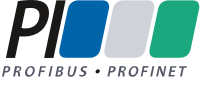PROFINET Specification
PROFINET
Description:
Overview and guidance for PROFINET specifications
IEC 61158-1
This document provides the overview and guidance how the IEC 61158 series is structured
and how it is related to the profile documents in the IEC 61784 series.
Details:
Version: 2.3
Order No.: 2.702
Language: English
______________________________________________________________
Application layer services for decentralized periphery
IEC 61158-5-10
The application service is provided by the application protocol making use of the services available from the data-link or other immediately lower layer. This document defines the application service characteristics that fieldbus applications and/or system management may exploit.
Details:
Version: 2.4MU3
Order No.: 2.712
Language: English
______________________________________________________________
Application layer protocol for decentralized periphery
IEC 61158-6-10
The application protocol provides the application service by making use of the services available from the data-link or other immediately lower layer. The primary aim of this document is to provide a set of rules for communication expressed in terms of the procedures to be carried out by peer application entities (AEs) at the time of communication.
Details:
Version: 2.4MU3
Order No.: 2.722
Language: English
______________________________________________________________
Profiles for decentralized periphery
IEC 61784–2
This part of IEC 61784 provides additional Communication Profiles (CP) to the existing Communication Profile Families (CPF) of IEC 61784–1. These communication profiles are called Real-Time Ethernet communication profiles.
Details:
Version: 2.4MU3
Order No.: 2.742
Language: English
___________________________________________________________________________________________________________________
Main difference to V2.3Ed2MU5 is the integration of Conformance Class “D” to specify PROFINET over TSN.
* Integration of IEEE 802 end-station, bridged end-station and bridge models
* Adjustment to definitions of TSN industrial profile
* Class 2 of Security Integration in PROFINET
V2.4MU3 mainly focuses on three topics
1. Complete security integration (aligned to IEC/IEEE 60802)
2. IEC/IEEE 60802 conformant end station, bridge, and bridged end station model
3. Enhancements for APL support – avoiding congestion loss
The device model derived from IEEE 802.1Q and a more stringent decoupling of PROFINET
middleware and network interface lead to structural changes in the documents.
➔ This process will be completed in the MU4 with the IEC/IEEE 60802 integration
Complete security integration in Profile, Service and Protocol for all conformance classes.
➔ This process will be completed in the MU4 with the IEC/IEEE 60802 integration
Mixed link speeds are identified as a major threat for creating congestion loss.
➔ Congestion loss prevention completed
***************************************************************************************************************************************************************************************
PROFINET V2.2 is specified in IEC61158-6-10 Ed2.0, IEC61158-5-10 Ed2.0 and IEC61784-2 Ed2.0.
These documents can be purchased from the IEC website by using the following link:
http://webstore.iec.ch/
__________________________________________________________________________________________________________________
The vendors who provide products with Media Redundancy functionality are authorized to make electronic copies of the attached (ASCII readable)
LLDP-EXT-IEC61158-TYPE10-MIB file (contained in the 7z file) as well as to publish them on their websites.
__________________________________________________________________________________________________________________
Files:
| # | Date | Filename | Type | Size |
|---|---|---|---|---|
| 17/11/2010 | Overview-for-PI-specs_2702_V23_Oct10.pdf | 720 KB | ||
| 28/06/2022 | PN-AL-services_2712_V24MU3_Jun22.pdf | 7 MB | ||
| 28/06/2022 | PN-AL-protocol_2722_V24MU3_Jun22.pdf | 11 MB | ||
| 28/06/2022 | PN-Profiles_2742_V24MU3_Jun22.pdf | 2 MB | ||
| 29/04/2020 | MIBs.7z | 7z | 14 KB | |
| 06/11/2020 | LLDP-EXT-IEC61158-TYPE10-MIB.mib | mib | 73 KB |
The downloads section on profibus.com offers a wealth of valuable resources that are essential for companies working in industrial automation. These documents, including technical descriptions, installation guides, and white papers, provide detailed insights into the implementation and use of PROFIBUS and PROFINET technologies. By accessing these resources, engineers and technical teams can significantly improve their understanding and efficiency in deploying robust, standardized communication solutions in industrial environments.
For companies looking to gain even more from the PROFIBUS ecosystem, becoming a member of PROFIBUS & PROFINET International (PI) offers additional benefits. Members enjoy exclusive access to advanced technical documentation, expert certification programs, and development tools that can accelerate innovation and ensure compliance with the latest industry standards. Membership also provides networking opportunities with other industry leaders, fostering collaboration and knowledge sharing, which is crucial in staying ahead in the fast-evolving automation landscape.
By joining PI, companies position themselves at the forefront of industrial communication technology, ensuring they remain competitive and well-equipped to tackle future challenges.

